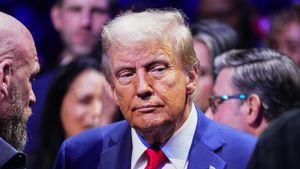Texas Governor Greg Abbott has taken decisive action against social media and AI applications believed to be affiliated with the People's Republic of China (PRC) and the Chinese Communist Party (CCP). This historic ban prohibits the use of six specific applications on government-issued devices, making Texas the first state to extend its restrictions beyond just TikTok, which has already been banned on state devices since December 2022.
The banned apps include Lemon8, RedNote, and the AI model DeepSeek, along with trading platforms Moomoo, Tiger Brokers, and Webull. Abbott's announcement came on Friday, framing these applications as security risks. “Texas will not allow the Chinese Communist Party to infiltrate our state’scritical infrastructure through data-harvesting AI and social media apps,” Abbott remarked, emphasizing the proactive measures being taken to protect Texas from potential threats.
The decision to include other Chinese applications reflects heightened concerns about data security. While TikTok has been the focal point of many states’ concerns, the trend has largely centered on restricting it alone. But with the increasing popularity of apps like DeepSeek, Abbott's administration deemed necessary to include additional platforms under this new ban. Abbott has previously emphasized the risks posed by Chinese technology, asserting the need to safeguard state resources from potential foreign interference.
DeepSeek has recently witnessed meteoric rise, with website visits jumping from just 300,000 per day to over six million. This surge caught Abbott's attention as well as significant political figures, including former President Donald Trump, who referred to this situation as “a wake-up call” for American companies. Analysts have drawn comparisons between DeepSeek's surprise emergence and the so-called 'Sputnik moment'—a term denoting pivotal moments of technological competition reminiscent of the space race.
RedNote, described as bearing similarities to globally popular platforms like TikTok, gained traction during its early days, rapidly accumulating over 200,000 users just before Abbott’s original TikTok restrictions kicked in. Despite this initial boom, the platform experienced a dramatic decline of nearly 50 percent just days after TikTok resumed its operations, illustrating the volatility surrounding social media's appeal.
Abbott's move indicates growing apprehension within Texas about the influence of Chinese technology. The fact the ban includes various applications—spanning social media to financial trading platforms—suggests legislators are seriously considering how these technologies can potentially compromise user data. With this ban, officials aim to bolster the integrity of Texas's digital infrastructure and data security.
The ramifications of Abbott’s announcement extend beyond state employees. The binding restrictions may affect how public institutions approach technology moving forward, compelling them to seek alternatives to the applications now forbidden. Having already the state's educational institutions follow through on the 2022 TikTok ban, similar enforcement of the new regulations will likely be expected across the board, ensuring compliance is prioritized.
Notably, Abbott previously began instructing agencies and institutions to shield their systems almost two months ago, emphasizing the importance of maintaining secure digital environments against outside threats. This past preparatory strategy reflects decisive leadership at work during pivotal times, especially as both state and national concerns over data security rise.
While some have praised Abbott for his diligence, critics warn about the broader consequences of the ban on digital literacy and technological growth within the state. The abrupt cessation of popular apps could stifle innovation and limit citizens' access to resources increasingly dominated by technological advancements. Critics argue these bans might set Texas back amid rapid growth stemming from AI and social media.
Interestingly, the backdrop of geopolitical tensions plays heavily within these decisions. With data privacy concerns associated with Chinese entities particularly heightened, Abbott's move aligns with national narratives about safeguarding data and pushing back against perceived threats from outside actors. Both Abbott and Trump appear to recognize the urgency of acting swiftly, as recent surges of app popularity indicate potential vulnerabilities must be addressed firmly.
Looking forward, the status of these applications and their appeal to users will be closely analyzed. With users often drawn to innovative and cost-effective solutions, impact on fan engagement and potential revenue for such apps could evoke serious questions about their future viability within the U.S. market. Political maneuvers and corporate decisions made by app developers create heavy stakes—where can they pivot to avoid being left behind amid rapid regulatory shifts?
Overall, Abbott’s ban marks another chapter focusing on technology and regulatory consideration for the state of Texas. Such actions could foreshadow how various states approach the increasing tides of digital compliance and user security. Shifts toward protective measures seem likely to demand more attention as platforms evolve and global concerns persist. For residents and officials alike—there’s much to deliberate and act upon moving forward.



